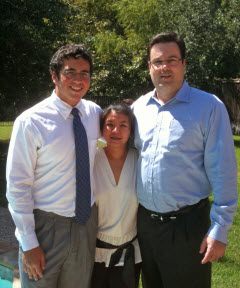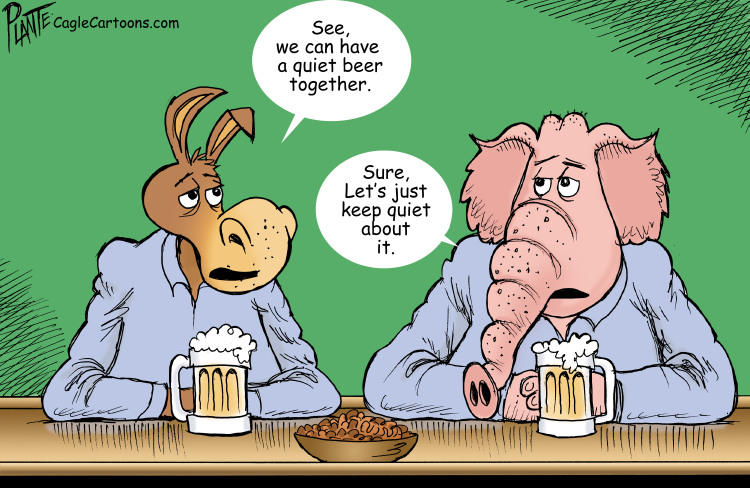How automated is too automated?
“To speak to a representative, say … representative …. “
“Representative.”
“Sorry I didn’t catch that … would you like for me to repeat the options menu?”
“NO”
“Sorry I didn’t catch that … please state wh…”
“REPRESENTATIVE”
“Sorry, all of our representatives are busy helping others at the moment ... Goodbye.”
*CALL ENDS*
How many of us have been in this scenario when on the phone with an airline, insurance company, or any other automated call center?
Where are the people? Why can’t I speak to a human?
One of my son’s few memories of my Dad involved listening to him going through a scenario like this with a late 1990s version of an auto-attendant. It was funny. My Dad became increasingly incensed that he couldn’t get to an actual human being. It devolved into: “Shut up! Stop talking! I’ll give you $50 if you let me talk with a real person.” And it went downhill from there.
The reality is that despite these systems being frustrating, they save companies time, money, and resources. And, in an ideal world, they streamline callers into organized categories, making for a more efficient experience. They’re clearly working on some level because you’re seeing increased adoption of A.I. chatbots and digital support systems.
For what it’s worth, I predict that AI-enabled chatbots are about to be huge! The evolution of this technology is going to take the place of people in marketing, sales, consulting, coaching, and even therapy.
But does the efficiency or effectiveness it creates justify the lack of human connection? Why did so many of the legacy call systems get rated so poorly?
I came across an article highlighting a trendy new restaurant in Venice, Italy. They serve the best dishes from several popular restaurants from across the city! They must have a massive kitchen and extensive staff to take on such a task, right? Wrong. This restaurant is fully automated; you order and receive food via … vending machines.
My first reaction was this … the convenience is fantastic, but you lose so much of the community and human interaction that you enjoy when going to a traditional restaurant. As I continued to read, however, the article explained that in order to “humanize” the restaurant, it is used as a meeting place for food tastings, community gatherings, and question-and-answer sessions.
Humanity and automation merged beautifully.
Semi-Automated Often Beats Fully Automated
Systemize the predictable so you can humanize the exceptional
— Isadore Sharp, Four Seasons
Earlier, I mentioned automated call centers, and how frustrating they can be. I’ve come in contact with several who have found a great balance in how they automate their system.
Often, the automated answers allow calls to be organized before reaching their intended destination or to answer frequently asked questions. Either way, it reduces the need to transfer calls to find the correct department or gets the caller the information they need without tying up phone lines and wasting their and the receptionists’ time with basic questions.
“There’s a lot of automation that can happen that isn’t a replacement of humans, but of mind-numbing behavior.”
— Stewart Butterfield
This quote highlights the point of automation! Expedite the menial tasks, which in turn frees up the people working to provide a far more attentive experience.
Humans tend to look for ways to increase efficiency in all aspects of their world. But we are social creatures, craving meaningful connection and community. Therefore, the human element will not only persist but remain vital.



Camp Kotok: Back Again!
I was just in Maine at Camp Kotok, a private gathering of economists, fund managers, and other financial industry professionals.
There was limited phone service or access to the Internet… so people had to talk with each other. And unlike most of my schedule, almost everything happened outside. Discussions, while vigorous, often take place while fishing or grilling.
At a past Camp Kotok, I did this interview with Bob Eisenbeis, Cumberland Advisors' Vice Chairman & Chief Monetary Economist. Check it out.
Cumberland Advisors via YouTube
Camp Kotok is an interesting place. The event transformed from a simple retreat after 9/11 ... when many attendees experienced the WTC collapse and came together for some fellowship and to discuss their experiences. From then on, attendance grew, and the gathering evolved.
As a side note, before the gathering became known as Camp Kotok, it was referred to as the “Shadow Fed” (in part because of the people who attend).
Attendees are bound to “Chatham House Rules” (participants are free to use the information received, but neither the identity nor the affiliation of the speaker(s), nor that of any other participant, may be revealed). However, general thoughts, ideas, forecasts, and comments can be discussed and published.
On this trip, I talked with David Kotok about the event, what it means, and how it’s grown.
The intent of the participants (and the environment) helps create a platform for meaningful and productive conversations about the opportunities and obstacles facing America and the world.
Every year, I come back with new ideas and fresh perspectives on things I forget to think about.
AI was on everyone's mind. The financial industry is changing quickly, and I’m confident that advanced technology will become an even bigger driver.
In general, economically, the mood was cautiously optimistic to bullish.
Remember, it is an election year!
Posted at 04:55 PM in Business, Current Affairs, Healthy Lifestyle, Ideas, Market Commentary, Trading, Travel | Permalink | Comments (0)
Reblog (0)